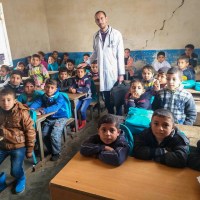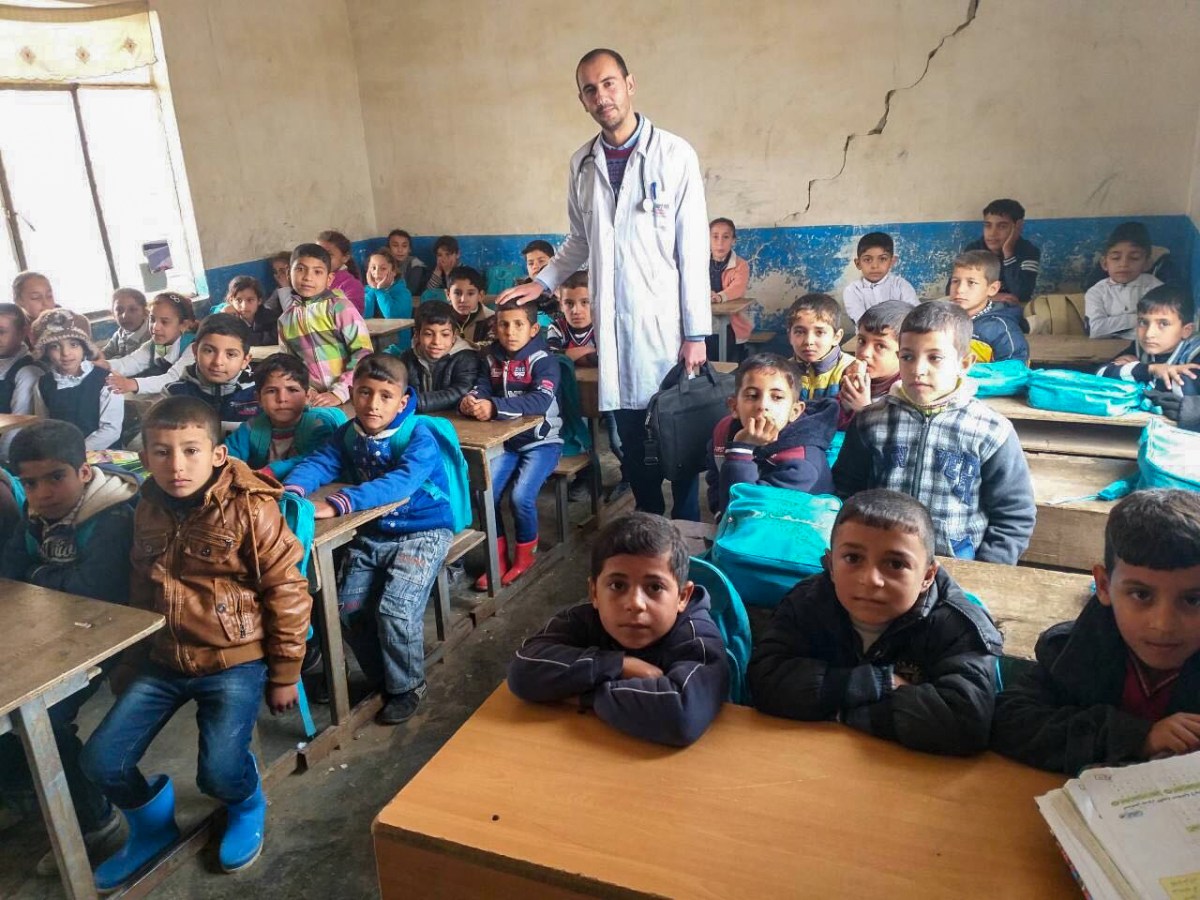There are so many questions when you’re a kid. Some questions are easy to answer eventually, like “why is the sky blue?” and “why do stars twinkle?”
There are the kinds of questions that can only be answered with exploration, like “what would happen if I mixed ketchup with chocolate milk?”
There are big questions that parents answer the best they can, like “what happens when we die?” and “why is there war?”
And then there are just really practical questions, like “why does my arm keep itching?”
Doctors from our primary health centers have been visiting outlying villages, delivering care to rural families who otherwise would not have access to care. They’ve also been visiting rural schools, allowing children to get basic healthcare, providing information for them to bring back to their families, and dramatically multiplying the number of young health advocates in the community.
And they’re providing lots of answers to curious kids.
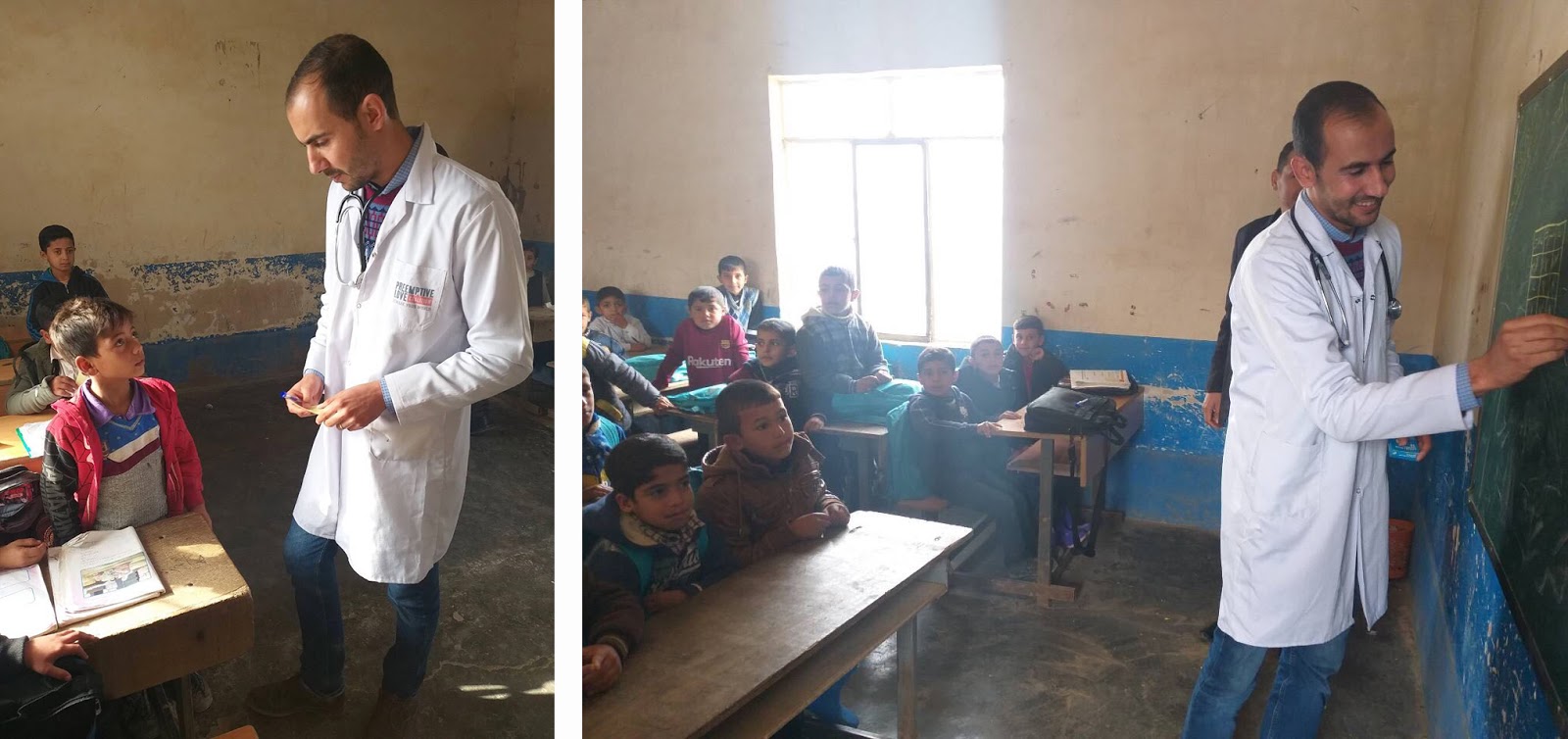
When you live in a place like rural Iraq, healthcare has always been difficult to access. Decades of war slowed the progress of country-wide infrastructure development. When tragedy strikes in major cities–when bombings happen in major population centers–of course those areas are rebuilt first. Urban infrastructure projects impact the most people.
The recent war against ISIS, which saw the destruction of hospitals and clinics in nearly every community they controlled, pushed development for rural areas back farther. Small, war-affected cities will see their hospitals and primary health centers renovated before new clinics are built in the rural areas. It makes sense. But it doesn’t make it easy for rural families to get the care they need.
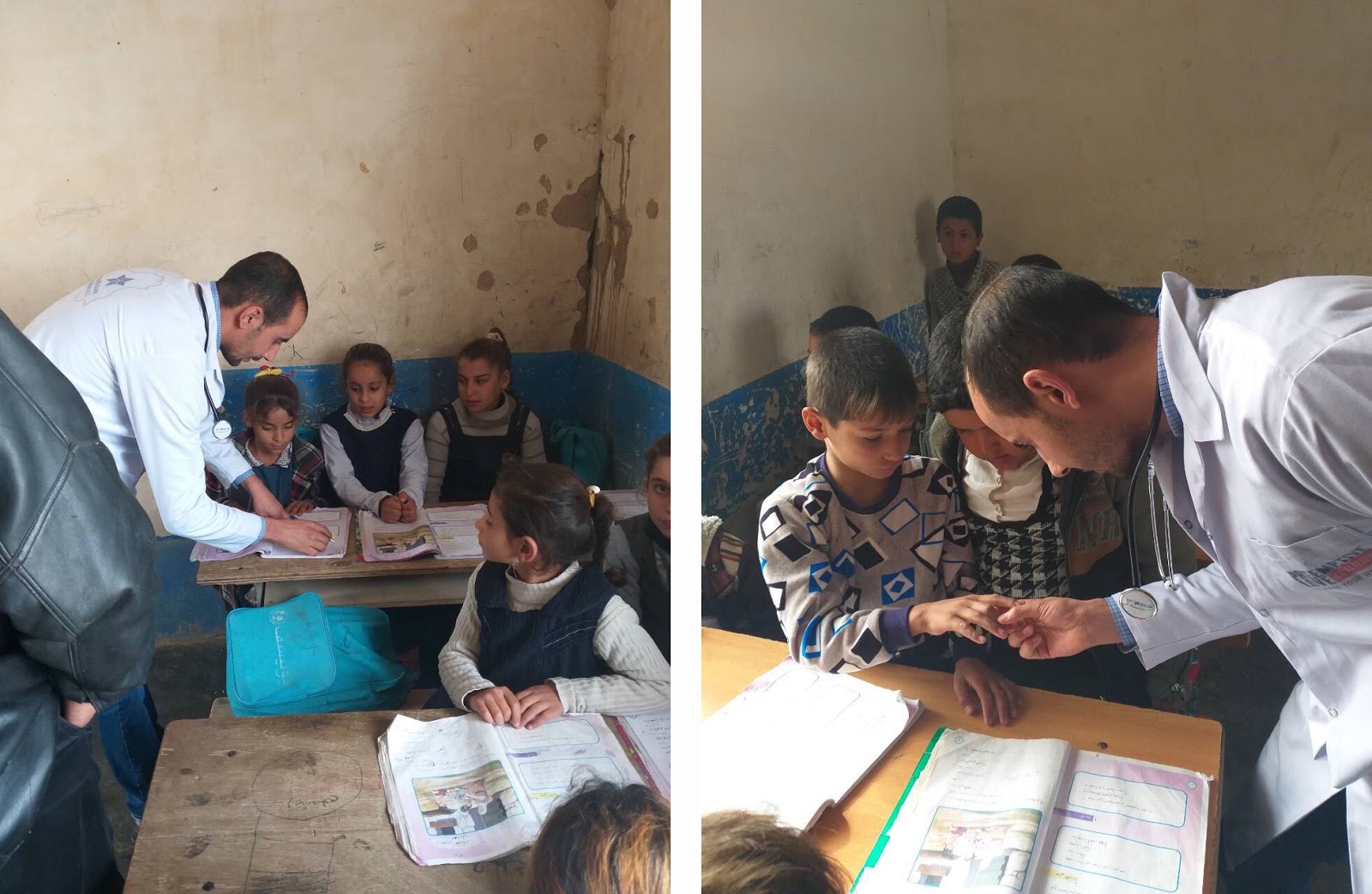
When you don’t have regular access to healthcare–when you’ve never had access to health care–there is a lot that you just don’t know. You don’t know that the itchy patch on your arm, the one driving you mad, isn’t going to go away on its own. You don’t know why it’s itchy. You don’t know what to do about it. You just scratch! And then your brother starts itching. But it’s hard to have sympathy because you’re going mad yourself.
You don’t know that you keep scratching because tiny mites have burrowed under your skin. You don’t know that as they make a home there, the scabies mites are causing your body to have an allergic reaction—and itch. And you don’t know that those mites are highly contagious and hard to get rid of here.
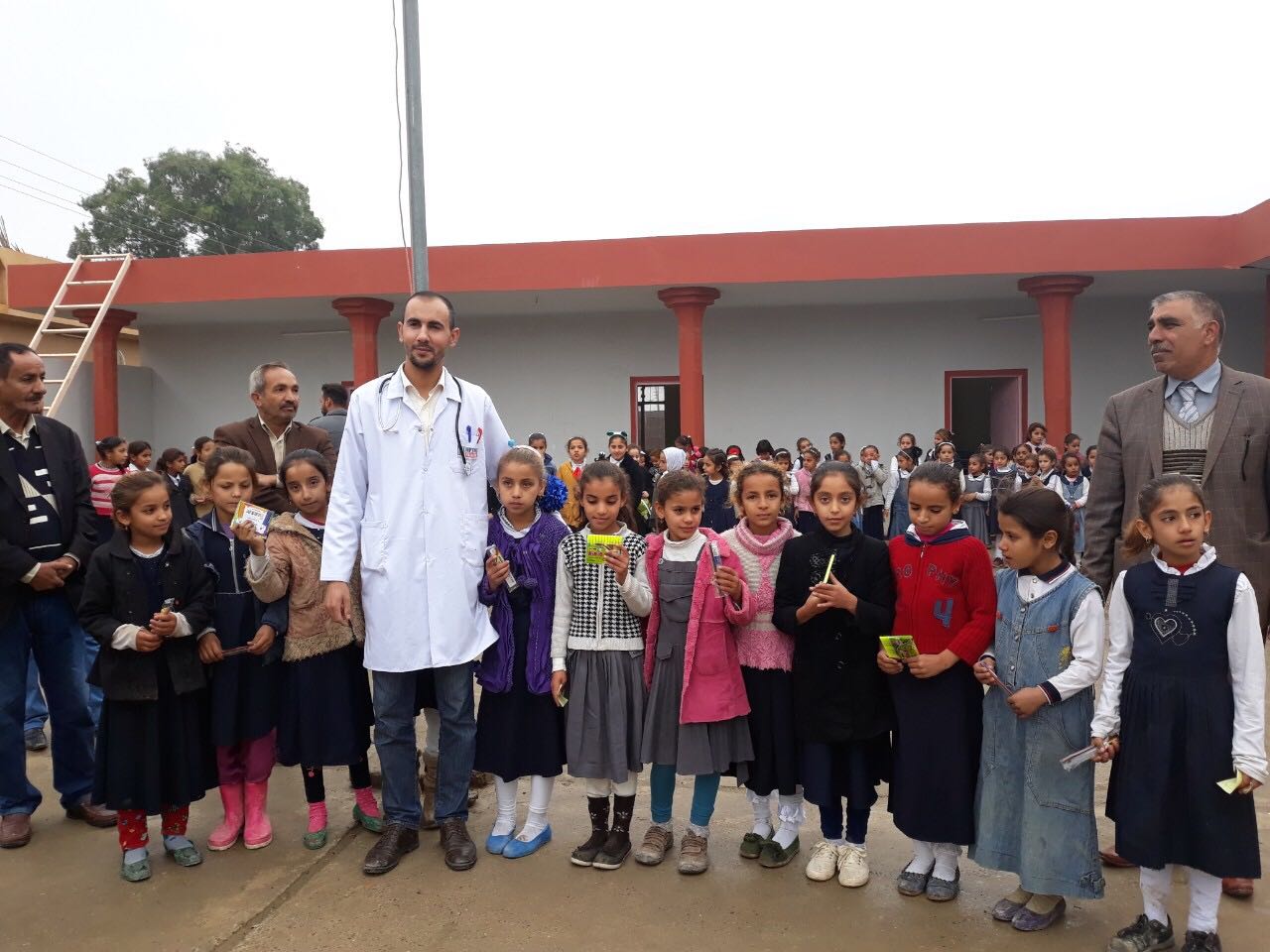
You help make it possible for doctors to travel to outlying villages and give check-ups to entire schools at a time. It’s so much easier for a team of doctors to travel than hundreds of families without cars!
You help make it possible for children to learn how to prevent the spread of communicable disease at home. Children are curious and love to help their families! It’s really hard to treat scabies outbreaks in schools with crowded classrooms, and home environments that are equally crowded. Teaching students how diseases like lice and scabies are spread prevents a lot of misery.
You help children to learn better too! Scabies outbreaks are often identified by teachers with growing numbers of students who can’t sit still in class because of scratching. It’s hard to concentrate on your studies when you or your deskmate are constantly itching.
It’s a relatively simple thing to do, but these school visits are having a big impact on learning and health!

